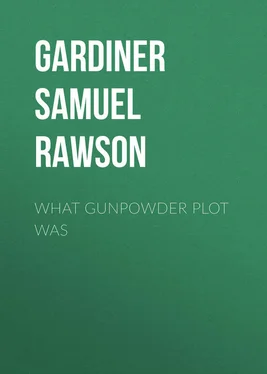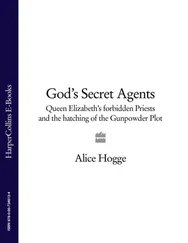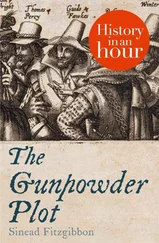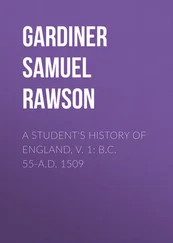Samuel Gardiner - What Gunpowder Plot Was
Здесь есть возможность читать онлайн «Samuel Gardiner - What Gunpowder Plot Was» — ознакомительный отрывок электронной книги совершенно бесплатно, а после прочтения отрывка купить полную версию. В некоторых случаях можно слушать аудио, скачать через торрент в формате fb2 и присутствует краткое содержание. Жанр: foreign_antique, foreign_prose, на английском языке. Описание произведения, (предисловие) а так же отзывы посетителей доступны на портале библиотеки ЛибКат.
- Название:What Gunpowder Plot Was
- Автор:
- Жанр:
- Год:неизвестен
- ISBN:нет данных
- Рейтинг книги:3 / 5. Голосов: 1
-
Избранное:Добавить в избранное
- Отзывы:
-
Ваша оценка:
- 60
- 1
- 2
- 3
- 4
- 5
What Gunpowder Plot Was: краткое содержание, описание и аннотация
Предлагаем к чтению аннотацию, описание, краткое содержание или предисловие (зависит от того, что написал сам автор книги «What Gunpowder Plot Was»). Если вы не нашли необходимую информацию о книге — напишите в комментариях, мы постараемся отыскать её.
What Gunpowder Plot Was — читать онлайн ознакомительный отрывок
Ниже представлен текст книги, разбитый по страницам. Система сохранения места последней прочитанной страницы, позволяет с удобством читать онлайн бесплатно книгу «What Gunpowder Plot Was», без необходимости каждый раз заново искать на чём Вы остановились. Поставьте закладку, и сможете в любой момент перейти на страницу, на которой закончили чтение.
Интервал:
Закладка:
Into this vault Johnson had, at sundry times, very privately conveyed a great quantity of powder, and therewith filled two hogsheads and some thirty-two small barrels; all which he had cunningly covered with great store of billets and faggots, and on Tuesday 20 20 A mistake for Monday if midnight is to be reckoned with the day preceding it.
at midnight, as he was busy to prepare the things for execution was apprehended in the place itself with a false lantern, booted and spurred. 21 21 The remainder of the draft is occupied with the discovery of the plot.
There is not much knowledge here beyond what Salisbury had learnt from Fawkes’s own statement with all its deceptions. Nor, if there had been any such knowledge, was it in any way revealed by the actions of the Government on the 5th or on the morning of the 6th. On the 5th a proclamation was issued for the apprehension of Percy alone. 22 22 Proclamation Book, R.O. , p. 114.
On the same day Archbishop Bancroft forwarded to Salisbury a story, afterward known to be untrue, that Percy had been seen riding towards Croydon; whilst Popham sent another untrue story that he had been seen riding towards Gravesend. 23 23 Bancroft to Salisbury, Nov. 5. Popham to Salisbury, Nov. 5 — G. P. B. Nos. 7, 9.
A letter from Waad, the Lieutenant of the Tower, of the same date, revealed the truth that Percy had escaped northwards. Of course, Percy’s house was searched for papers, but those discovered were of singularly little interest, and bore no relation to the plot. 24 24 Points and names of persons. — S. P. Dom. xvi. 9, 10.
An examination of a servant of Ambrose Rokewood, a Catholic gentleman afterwards known to have been involved in the plot, and of the landlady of the house in London in which Rokewood had been lodging, brought out the names of persons who had been in his company, some of whom were afterwards found to be amongst the conspirators; but there was nothing in these examinations to connect them with the plot, and there is no reason to suppose that they were prompted by anything more than a notion that it would generally be worth while to trace the movements of a noted Catholic gentleman. On the same day a letter from Chief Justice Popham shows that inquiries were being directed into the movements of other Catholics, and amongst them Christopher Wright, Keyes, and Winter; but the tone of the letter shows that Popham was merely acting upon general suspicion, and had no special information on which to work. 25 25 Popham to Salisbury, November 5. ( G. P. B. No. 10.) The P.S. only is of the 6th.
Up to the morning of November 6th, the action of Government was that of men feeling in the dark, so far as anything not revealed by Fawkes was concerned.
Commissioners were now appointed to conduct the investigation further. They were – Nottingham, Suffolk, Devonshire, Worcester, Northampton, Salisbury, Mar, and Popham, with Attorney-General Coke in attendance. 26 26 Narrative, G. P. B. No. 129.
This was hardly a body of men who would knowingly cover an intrigue of Salisbury’s: – Worcester is always understood to have been professedly a Catholic, Northampton was certainly one, though he attended the King’s service, whilst Suffolk was friendly towards the Catholics; 27 27 In a letter of advice sent to the Nuncio at Paris, on Sept. 10/20, he is distinctly spoken of as a Catholic, as well as Worcester. — Roman Transcripts, R.O.
and Nottingham, if he is no longer to be counted amongst them, 28 28 On July 20/30, 1605, Father Creswell writes to Paul V. that Nottingham showed him every civility ‘that could be expected from one who does not profess our holy religion.’
was at least not long afterwards a member of the party which favoured an alliance with Spain, and therefore a policy of toleration towards the Catholics. It is not the least of the objections to the view which Father Gerard has taken, that it would have been impossible for Salisbury to falsify examinations of prisoners without the connivance of these men.
Before five of these Commissioners – Nottingham, Suffolk, Devonshire, Northampton, and Salisbury – Fawkes was examined a second time on the forenoon of the 6th. In some way the Government had found out that Percy had had a new door made in the wall leading to the cellar, and they now drew from Fawkes an untrue statement that it was put in about the middle of Lent, that is to say, early in March 1605. 29 29 The ‘cellar’ was not really hired till a little before Easter, March 31.
They had also discovered a pair of brewer’s slings, by which barrels were usually carried between two men, and they pressed Fawkes hard to say who was his partner in removing the barrels of gunpowder. He began by denying that he had had a partner at all, but finally answered that ‘he cannot discover the party, but’ — i. e. lest – ‘he shall bring him in question.’ He also said that he had forgotten where he slept on Wednesday, Thursday or Friday in the week before his arrest. 30 30 Second examination of Fawkes, November 6. — G. P. B. No. 16 A.
Upon this James himself intervened, submitting to the Commissioners a series of questions with the object of drawing out of the prisoner a true account of himself, and of his relations to Percy. A letter had been found on Fawkes when he was taken, directed not to Johnson, but to Fawkes, and this amongst other things had raised the King’s suspicions. In his third examination, on the afternoon of the 6th, in the presence of Northampton, Devonshire, Nottingham, and Salisbury, Fawkes gave a good deal of information, more or less true, about himself; and, whilst still maintaining that his real name was Johnson, said that the letter, which was written by a Mrs. Bostock in Flanders, was addressed to him by another name ‘because he called himself Fawkes,’ that is to say, because he had acquired the name of Fawkes as an alias.
‘If he will not otherwise confess,’ the King had ended by saying, ‘the gentler tortures are to be first used unto him, et sic per gradus ad ima tenditur .’ To us living in the nineteenth century these words are simply horrible. As a Scotchman, however, James had long been familiar with the use of torture as an ordinary means of legal investigation, whilst even in England, though unknown to the law, that is to say, to the practice of the ordinary courts of justice, it had for some generations been used not infrequently by order of the Council to extract evidence from a recalcitrant witness, though, according to Bacon, not for the purpose of driving him to incriminate himself. Surely, if the use of torture was admissible at all, this was a case for its employment. The prisoner had informed the Government that he had been at the bottom of a plot of the most sanguinary kind, and had acknowledged by implication that there were fellow-conspirators whom he refused to name. If, indeed, Father Gerard’s view of the case, that the Government, or at least Salisbury, had for some time known all about the conspiracy, nothing – not even the Gunpowder Plot itself – could be more atrocious than the infliction of torments on a fellow-creature to make him reveal a secret already in their possession. If, however, the evidence I have adduced be worth anything, this was by no means the case. What it shows is, that on the afternoon of the 6th all that the members of the Government were aware of was that an unknown number of conspirators were at large – they knew not where – and might at that very moment be appealing – they knew not with what effect – to Catholic landowners and their tenants, who were, without doubt, exasperated by the recent enforcement of the penal laws. We may, if we please, condemn the conduct of the Government which had brought the danger of a general Catholic rising within sight. We cannot deny that, at that particular moment, they had real cause of alarm. At all events, no immediate steps were taken to put this part of the King’s orders in execution. Some little information, indeed, was coming in from other witnesses. In his first examination, on November 5, Fawkes had stated that in his absence he locked up the powder, and ‘one Gibbons’ wife who dwells thereby had the charge of the residue of the house.’ An examination of her husband on the 5th, however, only elicited that he, being a porter, had with two others carried 3,000 billets into the vault. 31 31 Examination of Gibbons, November 5. — S. P. Dom. xvi. 14.
On the 6th Ellen, the wife of Andrew Bright, stated that Percy’s servant had, about the beginning of March, asked her to let the vault to his master, and that she had consented to abandon her tenancy of it if Mrs. Whynniard, from whom she held it, would consent. Mrs. Whynniard’s consent having been obtained, Mrs. Bright, or rather Mrs. Skinner – she being a widow remarried subsequently to Andrew Bright 32 32 “Mrs. Whynniard, however, tells us,” writes Father Gerard (p. 73), “that the cellar was not to let, and that Bright had not the disposal of the lease, but one Skinner.” What Mrs. Whynniard said was that the vault was ‘let to Mr. Skinner of King Street; but that she and her husband were ready to consent if Mrs. Skinner’s good will could be had.’ ‘Mr.’ in the first writing of the name is evidently a slip of the clerk’s, as Mrs. Whynniard goes on to speak of ‘Mrs. Skinner then, and now the wife of Andrew Bright.’ — G. P. B. No. 39.
– received 2 l. for giving up the premises. The important point in this evidence is that the date of March 1605, given as that on which Percy entered into possession of the cellar, showed that Fawkes’s statement that he had brought powder into the cellar at Christmas 1604 could not possibly be true. On the 7th, Mrs. Whynniard confirmed Mrs. Bright’s statement, and also stated that, a year earlier, in March 1604, ‘Mr. Percy began to labour very earnestly with this examinate and her husband to have the lodging by the Parliament House, which one Mr. Henry Ferris, of Warwickshire, had long held before, and having obtained the said Mr. Ferris’s good will to part from it after long suit by himself and great entreaty of Mr. Carleton, Mr. Epsley, 33 33 Probably ‘Hippesley.’
and other gentlemen belonging to the Earl of Northumberland, affirming him to be a very honest gentleman, and that they could not have a better tenant, her husband and she were contented to let him have the said lodging at the same rent Mr. Ferris paid for it.’ 34 34 Father Gerard, (p. 91, note 5) accepts Goodman’s assertion that it was said that Whynniard ‘as soon as ever he heard of the news what Percy intended, he instantly fell into a fright and died: so that it could not be certainly known who procured him the house, or by whose means.’ That Whynniard was alive on the 7th is proved by the fact that Susan Whynniard is styled his wife and not his widow at the head of this examination. As he was himself not questioned it may be inferred that he was seriously ill at the time. That his illness was caused by fright is probably pure gossip. Mrs. Bright, when examined ( G. P. B. No. 24) speaks of Mrs. Whynniard as agreeing to change the tenancy of the cellar, which looks as if the husband had been ill and inaccessible at least six months before his death.
Mrs. Whynniard had plainly never heard of the mine; and that the Government was in equal ignorance is shown by the endorsement on the agreement of Ferris, or rather Ferrers, to make over his tenancy to Percy. ‘The bargain between Ferris and Percy for the bloody cellar, found in Winter’s lodging.’ Winter’s name had been under consideration for some little time, and doubtless the discovery of this paper was made on, or more probably before, the 7th. The Government, having as yet nothing but Fawkes’s evidence to go upon, connected the hiring of the house with the hiring of the cellar, and at least showed no signs of suspecting anything more.
Интервал:
Закладка:
Похожие книги на «What Gunpowder Plot Was»
Представляем Вашему вниманию похожие книги на «What Gunpowder Plot Was» списком для выбора. Мы отобрали схожую по названию и смыслу литературу в надежде предоставить читателям больше вариантов отыскать новые, интересные, ещё непрочитанные произведения.
Обсуждение, отзывы о книге «What Gunpowder Plot Was» и просто собственные мнения читателей. Оставьте ваши комментарии, напишите, что Вы думаете о произведении, его смысле или главных героях. Укажите что конкретно понравилось, а что нет, и почему Вы так считаете.












